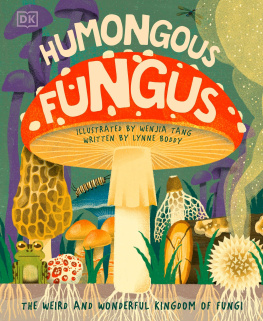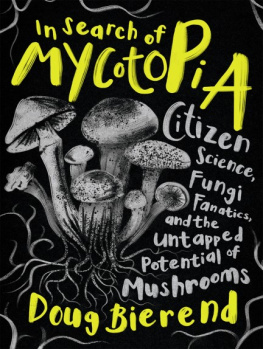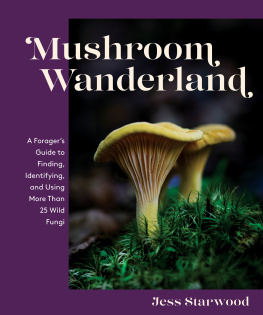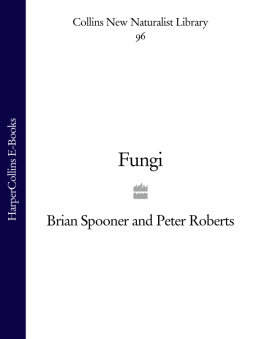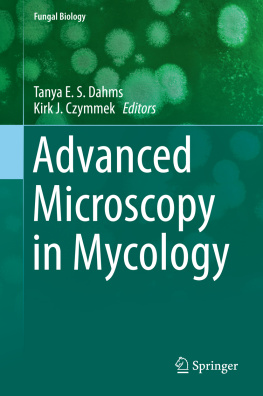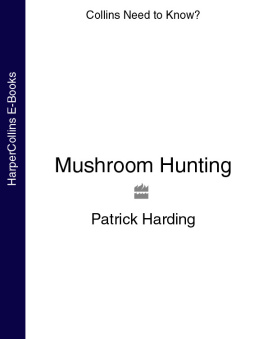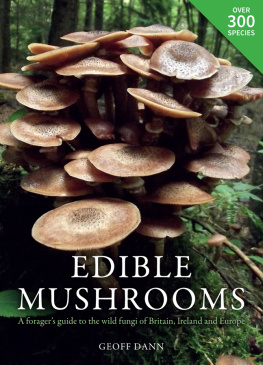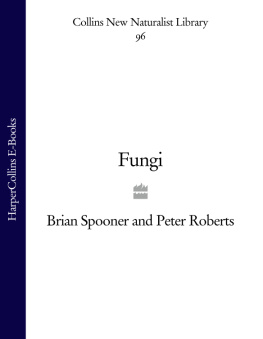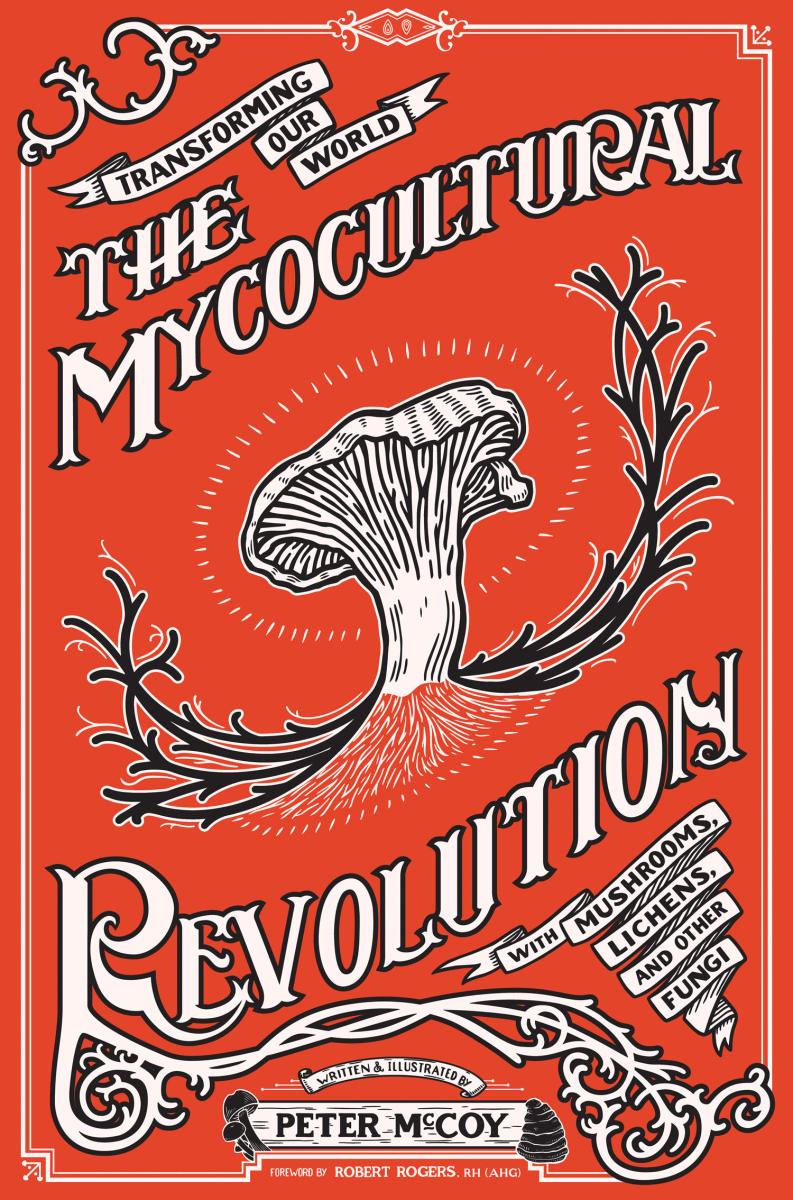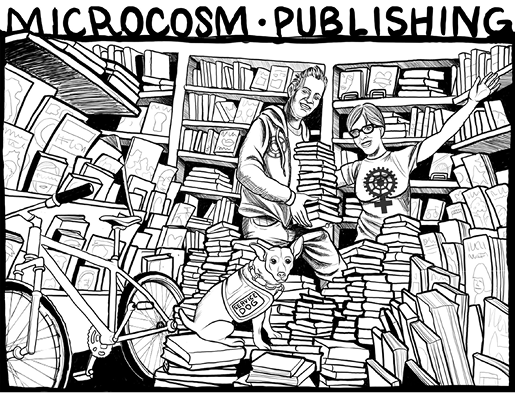2752 N Williams Ave.
The publisher and author are not responsible for any damages or negative consequences that result from any treatment, action, application, or preparation following the information in this book. This book is not meant to be usednor should it be usedto diagnose or treat a medical condition. For diagnosis or treatment of any medical problem, consult a licensed physician. In addition, the author and publisher do not represent or warrant that the information accessible via this book is legal, complete, or current. It is accurate to the best of the authors knowledge. This information is provided for educational purposes only. References are provided for informational purposes only and do not constitute endorsements of any websites or other sources.
Microcosm Publishing is Portlands most diversified publishing house and distributor with a focus on the colorful, authentic, and empowering. Our books and zines have put your power in your hands since 1996, equipping readers to make positive changes in their lives and in the world around them. Microcosm emphasizes skill-building, showing hidden histories, and fostering creativity through challenging conventional publishing wisdom with books and bookettes about DIY skills, food, bicycling, gender, self-care, and social justice. What was once a distro and record label started by Joe Biel in a drafty bedroom, was determined to be Publishers Weeklys fastest growing publisher of 2022 and has become among the oldest independent publishing houses in Portland, OR and Cleveland, OH. We are a politically moderate, centrist publisher in a world that has inched to the right for the past 80 years.
Did you know that you can buy our books directly from us at sliding scale rates? Support a small, independent publisher and pay less than Amazons price at www. Microcosm.Pub

Dedicated to anyone learning from the past to heal the present and spawn a brighter future.
Contents
Foreword by Robert Rogers, RH (AHG)
Preface
Introduction: Mycoculture Rising
Part I: The Past Is Myceliated
Chapter 1: Foraging Forever
Chapter 2: Umami, That Tastes Good!
Chapter 3: Grand Chemists, Great Healers
Part 2: Spawning the Present
Chapter 4: Grow Your Own Mushrooms, For Everybody!
Chapter 5: The Language of a Mycofolk
Part 3: A Future for Fungi
Chapter 6: The Mushroom Garden
Chapter 7: A Mycocultural Revolution
Appendix A: Species Profiles
Appendix B: Suppliers and Online Resources
Appendix C: Helpful Conversion Ratios
Glossary
Foreword
I first met Peter on my second trip to Telluride in 2014. I was invited to give a few presentations on medicinal mushrooms, and the organizers lodged me in a house with a few other speakers. Peter had grabbed a secluded, second floor bedroom, and I barely saw him for the entire five days, as he worked fervently on his excellent, and highly successful, Radical Mycology: A Treatise on Seeing & Working with Fungi manuscript.
A few years later, Peter was invited to present at the Alberta Mycological Associations Annual Dinner. I had served as vice-president for many years, and I quickly agreed to greet him at the airport.
The next evening, Peter gave a thoughtful, passionate presentation on the importance of mushrooms to all our lives, mixed in with his vision of community-based citizen science and the future of fungi.
And thus, I was very honored when Peter invited me to share a few words about his latest book.
It is said, in the publishing world, that a hugely successful first book can lead to an authors concerns regarding their sophomore publication.
There are no worries here! Peter has expanded on his futuristic vision of the importance and versatility of fungi, shining a light on their significant contributions.
The Mycocultural Revolution continues an important dialogue around the mushrooms numerous benefits today and spawning forward.
The literary journey begins with a history of his involvement in the radical mycology movement (including the original zine), the 2016 publication of Radical Mycology , and some background around the five previous radical mycology convergences, as well as numerous event tours around the continent.
The Mycocultural Revolution covers lots of new, fertile ground, including great tips on wild foraging, and the history and benefits of fungal fermentation, including detailed recipes for various myco-cultures, including tempeh, mead, miso, and the delicious corn smut (huitlacoche).
The book touches on the better-known medicinal mushrooms and how anyone can produce their own safe and efficient dual extraction tinctures.
Cultivation techniques, covered extensively in his previous book, are reviewed and refined, with an interesting integration of fungi and gardening.
I have been recording mushroom music for many years, so I was thrilled to see this concept mentioned, along with unique philosophical ideas around creative mushroom movements, dance, and expressions, all in the context of cultural projects. So fascinating!
Fungal pigments and dyes are mentioned, along with the yet to be fully explored importance of myco-remediation, and an examination of fungal endophyte relationships within the plant kingdom. As an herbalist for a half century, I am increasingly convinced the health and medicinal properties of herbs are due, in large part, to this fungal relationship.
Above all, Peters passion for the fungal kingdom shines through, personified by his love and commitment to helping create a healthy, sustainable, and vibrant planet and people. May the spores be with you!
Robert Rogers, RH (AHG)
May 2022 Edmonton, Alberta
preface
M ycology, the study of fungi, is one of the most inspiring, mysterious, exciting, and empowering topics I have ever studied. And yet, like almost everyone Ive met, I was taught next to nothing about mushrooms, molds, or yeasts growing up. Of what little I learned from my peers and the medias depiction of fungi, I knew that most species were to be feared and avoidedsave for the cold, tasteless species found at diner salad bars or, for the devious, the few mushrooms that could alter your perception of reality. Beyond that limited presentation, fungi were almost never mentioned in any context, and so I unconsciously assumed that they didnt matter.
Introduction: Mycoculture Rising
F or over two decades, a global uprising of interest in mushrooms has brought the notion that fungi matter, shifting it from its centuries-old refuge on the fringes of society towards the center of nearly every aspect of modern life. No longer are mushrooms as feared as they were just a few years ago. Society has increasingly embraced them for their curious ways and seemingly endless ability to help solve some of the worlds most challenging issues. People around the world are rapidly discovering that the simple acts of growing gourmet and medicinal mushrooms could reduce global hunger, alleviate some of the most challenging diseases of the 21 st century, improve topsoil health, and even reduce pollution. Indeed, it seems that with each new research paper published on fungi, that the science of mycology only grows in its ability to spawn a better world through working with these incredible organisms.


